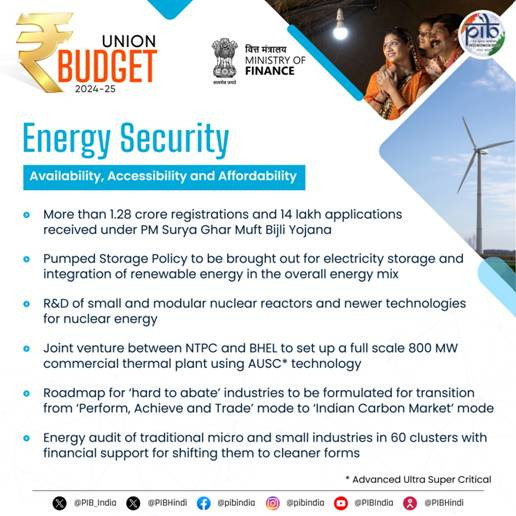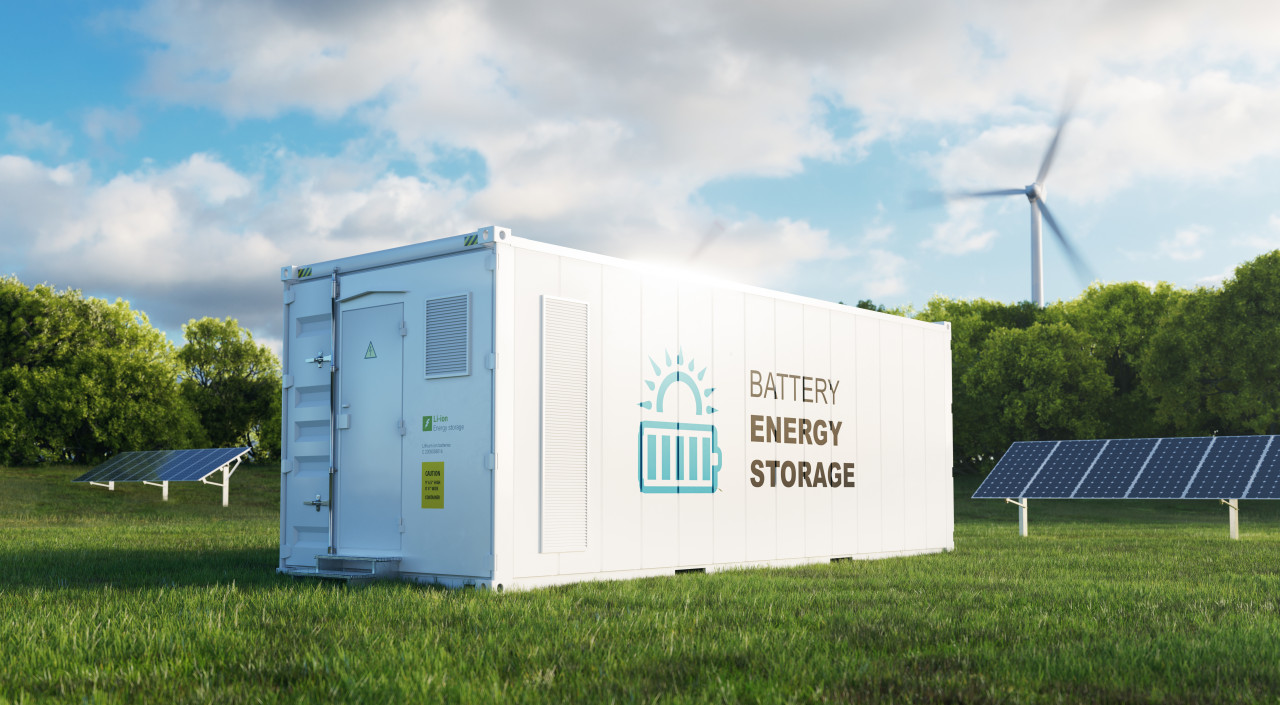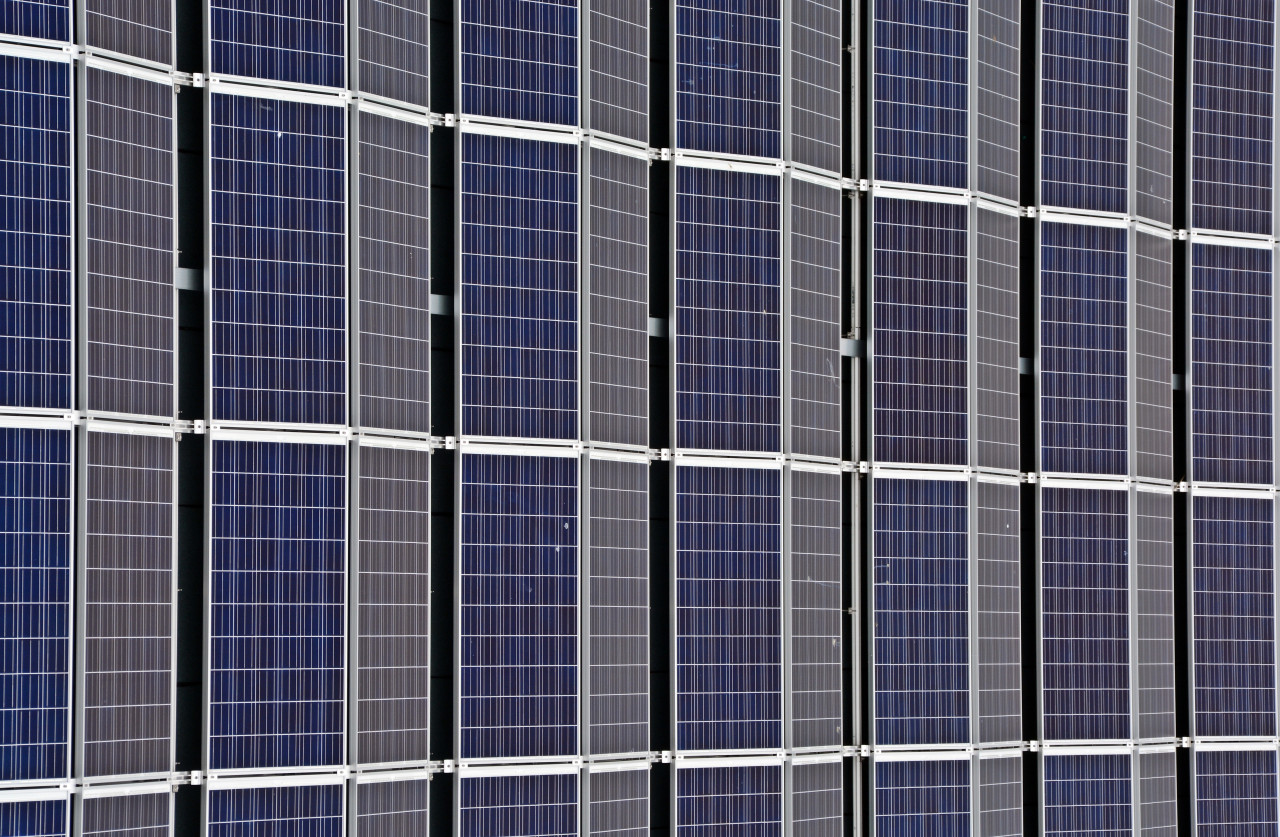Energy security in mind, FM spotlights pumped storage, decarbonization and rooftop solar
The Government of India will bring out a policy document on appropriate energy transition pathways that balance the imperatives of employment, growth and environmental sustainability, Finance Minister Nirmala Sitharaman said while delivering the Union Budget.
She pointed out that this was in continuation of the Center's strategy to sustain high and more resource-efficient economic growth, along with energy security in terms of availability, accessibility and affordability.
Energy Security emerged among the top nine priorities for the Finance Minister as she delivered a Budget with several measures for the country's energy sector. Among the measures announced in this regard:
Pumped Storage Policy
The Finance Minister announced there would be a policy for promoting pumped storage projects which will be brought out for electricity storage and facilitating smooth integration of the growing share of renewable energy with its variable and intermittent nature in the overall energy mix.
Terming the energy transition as "critical" in the fight against climate change, the Finance Minister announced plans to expand the list of exemptions for capital goods used in the manufacture of solar cells and panels. Also, taking the view that domestic manufacturing capacity of solar glass and tinned copper interconnect had reached sufficient levels, Budget 2024-25 proposed not to extend customs duty exemption provided to them.
Roadmap for 'Hard to Abate' industries
The Finance Minister also added that a roadmap for moving the 'hard to abate' industries from 'energy efficiency' targets to 'emission targets' will be formulated. She announced that appropriate regulations for transition of these industries from the current 'Perform, Achieve and Trade' mode to 'Indian Carbon Market' mode will be put in place.
Dr. Rahul Walawalkar, President of India Energy Storage Alliance (IESA) and President and Managing Director of Customized Energy Solutions India Pvt Ltd, commented on the FM's announcements: "IESA welcomes announcement for support of pumped hydro storage in the Union Budget, which is a key step for supporting Long Duration Energy Storage technologies in India. We welcome efforts for support for hard-to-abate sectors for improving energy efficiency and adopting clean energy. Recent tender results for RE+storage have demonstrated that India is poised to adopt large scale Firm and Dispatchable Renewable Energy (FDRE) coupled with energy storage for such decarbonization effort."
Energy audits for traditional micro and small industries
The Finance Minister announced plans to facilitate an investment-grade energy audit of traditional micro and small industries in 60 clusters, including brass and ceramics. Financial support will be provided for shifting them to cleaner forms of energy and the scheme will be replicated in another 100 clusters in the next phase, the FM announced.
PM Surya Ghar Muft Bijli Yojana
The Pradhan Mantri Surya Ghar Muft Bijli Yojana, which aims to install rooftop solar plants on 1 crore households and grant them 300 units of free electricity every month, has been launched in line with the announcement in the interim Budget. The scheme, which has a corpus of ₹75,000 crore, has generated remarkable response with more than 1.28 crore registrations and 14 lakh applications, the Finance Minister said.
Research and development of Small and Modular Nuclear Reactors
Nuclear energy is expected to form a very significant part of the energy mix for 'Viksit Bharat', the Finance Minister emphasized.
Towards this, the Center will partner with the private sector for setting up Bharat Small Reactors; research & development of Bharat Small Modular Reactor; and research & development of newer technologies for nuclear energy.
The R&D funding of ₹1 lakh crore announced in the interim budget will be made available for this sector, the FM said.
800 MW next-gen thermal capacity
The Finance Minister announced that India had completed development of indigenous technology for next-generation thermal power plants, dubbed the Advanced Ultra Super Critical (AUSC) thermal power plants.
A joint venture between government owned companies NTPC and BHEL will set up a full scale 800 MW commercial plant using AUSC technology with the Center providing required fiscal support, the FM said.






















